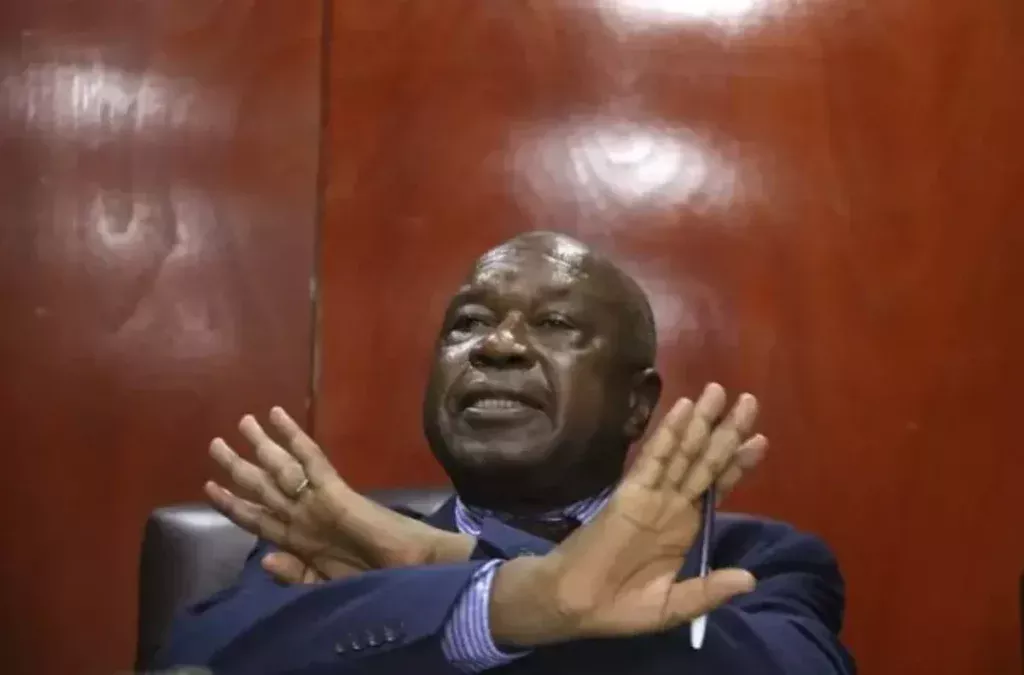Zim now under an undisputed full-blown dictatorship

Zanu PF spokesman Christopher Mutsvangwa
ZIMBABWE is now a full-blown dictatorship where the State openly interferes with judicial processes to silence dissenting voices, with the ruling party boasting of having a hand in the arrest of opposition activists, analysts have said.
The Southern African nation is facing escalating political turmoil as the once-promising democratic landscape transforms into a troubling dictatorship, where the government’s grip extends even to the realm of justice, stifling dissent and silencing opposition voices.
The ruling party, Zanu PF, has unabashedly wielded its power to manipulate judicial processes, leading to the arrest of numerous opposition activists, a move that has sparked widespread condemnation and concern among analysts.
The recent statements by Zanu PF national spokesperson Christopher Mutsvangwa have only amplified these concerns. Mutsvangwa hinted at the potential release of opposition activists who were detained ahead of the 44th Southern African Development Community (Sadc) Heads of State and Government Summit, a move perceived by many as a strategic attempt to quell dissent prior to the international event hosted by Zimbabwe.
Criticism swiftly followed from human rights groups and opposition parties, denouncing the government’s actions as a blatant infringement on judicial independence. The conflation of powers between the Executive and the Judiciary has been starkly highlighted, with voices like Citizens Coalition for Change spokesperson Promise Mkwananzi decrying the weaponization of the law for political gains, labeling it as an affront to the country’s constitutional principles.
“It confirms what we have always stated that there is a conflation between the Executive and the Judiciary. The weaponisation and abuse of the law for Zanu PF political ends is now disgusting and embarrassing for the Judiciary,” said Mkwananzi.
“Who is Mutsvangwa and what official judicial authority does he hold to determine the detention and release of the accused persons? I think he should apologise and withdraw his ill-concieved statement. It’s disrespect to the Judiciary and the people of Zimbabwe and an abdication of our Constitution.”
Blessing Vava, the executive director of Crisis in Zimbabwe Coalition, lamented the unjust detention of individuals who had committed no crimes, shedding light on a judiciary seemingly influenced and controlled by the ruling party. The lack of judicial independence has become a glaring issue, as noted by various civil rights organizations, including Zimbabwe Lawyers for Human Rights and the Zimbabwe Democracy Institute.
“It’s sad and unfortunate that these people are not supposed to be in detention. This gives answers to the disturbing trend where we have seen courts giving dubious judgments,” he said. “It shows that the ruling Zanu PF has captured the courts and there is no longer judicial independent in the country.”
Roselyn Hanzi of Zimbabwe Lawyers for Human Rights warned of potential legal repercussions for Zanu PF’s involvement in the activists’ arrests, emphasizing the importance of respecting the courts’ independence and upholding the doctrine of separation of powers.
“While he is saying it in a jovial mood, he should not cry foul if his party is cited as a party to legal proceedings to claim for various damages monetary awards such as for malicious prosecution, loss of income, pain and suffering (caused by various kinds of torture) and being jointly and severally liable with State institutions and actors involved. Respect independence of courts and doctrine of separation of powers,” she said.
The Zimbabwe Democracy Institute aptly characterized the government’s crackdown as a symptom of a deeper crisis, highlighting the decay of the social contract and the erosion of political legitimacy. This dark shadow cast over the nation’s public image and democratic aspirations underscores the urgent need for a return to genuine democratic principles and the preservation of judicial independence in Zimbabwe.
“The government’s glaring defiance of the two foundations of society constitutional norms and culture has cast a dark shadow over the country’s public posture, its culture, and its democratic aspirations. The Zimbabwe Democracy Institute’s argument is that the crackdown is a political legitimacy deficiency syndrome, the symptoms of later stages of a decaying social contract upon which the very existence of government and consequently the State, lies.”






